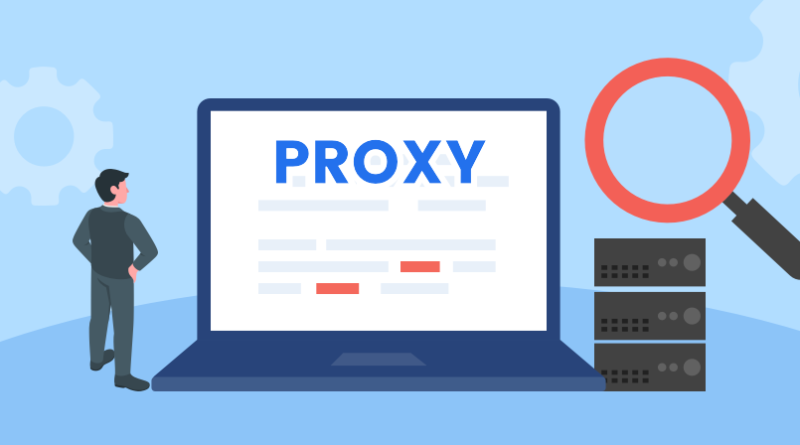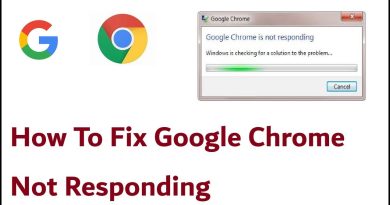How to Use Proxy Servers for Anonymous Browsing
In today’s digital world, online privacy has become one of the most pressing concerns for internet users. Every click, search, and website visit can be tracked by advertisers, internet service providers (ISPs), and sometimes even government agencies. While tools like Virtual Private Networks (VPNs) and Tor are popular, proxy servers remain a reliable method for browsing the internet anonymously.Proxy servers act as intermediaries between your device and the websites you visit. Instead of directly connecting to a website, your request goes through the proxy, which masks your IP address and hides your browsing activity. Whether you want to bypass geo-restrictions, protect your identity, or simply browse without leaving digital footprints, proxy servers can be extremely useful.This article will cover everything you need to know about proxy servers, including their types, how to use them, benefits, risks, and best practices for anonymous browsing.
What Is a Proxy Server?
A proxy server is a system or router that acts as a gateway between users and the internet. It provides varying levels of functionality, security, and privacy depending on how it is configured.When you connect through a proxy, the websites you visit don’t see your original IP address. Instead, they see the IP address of the proxy server, making your activity harder to trace.
Why Use Proxy Servers for Anonymous Browsing?
-
Mask Your IP Address
Your IP address reveals your approximate location and ISP. A proxy hides this information, giving you anonymity. -
Bypass Geo-Restrictions
Many websites restrict content based on regions (e.g., Netflix libraries, news portals). A proxy lets you appear as if you’re in another country. -
Prevent Tracking by Advertisers
Marketers use cookies and IP data to track users across websites. A proxy makes it difficult for them to build accurate profiles. -
Protect Identity in Public Wi-Fi
Using a proxy on unsecured networks helps minimize exposure to hackers. -
Improve Security
While proxies are not foolproof, they add an extra layer of protection by keeping your identity hidden.
Types of Proxy Servers
Not all proxies are the same. Each type has unique advantages depending on your goals.
1. HTTP Proxies
-
Designed to handle web traffic (HTTP and HTTPS).
-
Useful for browsing, streaming, and bypassing restrictions.
-
Doesn’t encrypt traffic, so not ideal for sensitive data.
2. SOCKS Proxies
-
Works at a lower level, supporting all kinds of traffic (email, FTP, torrents, etc.).
-
Better for high-bandwidth activities.
-
Can be slower if heavily used.
3. Transparent Proxies
-
Reveal your IP address but still cache and filter content.
-
Often used in schools, offices, and libraries for monitoring.
-
Not ideal for anonymity.
4. Anonymous Proxies
-
Hides your IP address but reveals that you’re using a proxy.
-
Provides moderate anonymity.
5. Elite (High-Anonymous) Proxies
-
Hide your IP and do not reveal proxy usage.
-
The best choice for total anonymity.
6. Residential Proxies
-
Use real residential IP addresses, making them appear like normal home users.
-
Very difficult to detect and block.
7. Datacenter Proxies
-
Provided by third-party servers (not linked to ISPs).
-
Fast and affordable but easier to detect.

How to Use Proxy Servers for Anonymous Browsing
Step 1: Choose the Right Proxy
-
For casual browsing: HTTP/HTTPS proxy is sufficient.
-
For downloading or torrents: SOCKS5 proxy works best.
-
For maximum anonymity: Elite residential proxy is recommended.
Step 2: Configure Proxy in Your Browser
-
Google Chrome / Microsoft Edge
-
Go to Settings → System → Open Proxy Settings.
-
Enter the proxy server address and port.
-
-
Mozilla Firefox
-
Go to Options → Network Settings → Settings.
-
Select Manual proxy configuration.
-
Enter proxy details.
-
Step 3: Use Proxy Software or Apps
-
Many paid services offer dedicated apps to manage proxy settings.
-
Examples: Smartproxy, Bright Data, Oxylabs.
Step 4: Test Anonymity
-
Visit sites like whatismyip.com to check if your IP has changed.
-
Ensure DNS leaks are not revealing your real location.
Benefits of Using Proxy Servers
-
Enhanced Privacy – Hide IP and browsing habits.
-
Access Blocked Content – Unlock region-locked websites.
-
Control Employee Internet Usage – Companies use proxies to monitor staff browsing.
-
Improved Performance – Caching frequently visited sites for faster loading.
-
Data Scraping – Businesses use proxies to gather data without being blocked.
Risks and Limitations of Proxy Servers
-
No Encryption
-
Unlike VPNs, most proxies don’t encrypt traffic. Hackers or ISPs can still intercept data.
-
-
Unreliable Free Proxies
-
Many free proxies are unsafe and may log your activity or inject ads.
-
-
Speed Issues
-
Shared proxies may slow down browsing.
-
-
Detection and Blocking
-
Some websites (e.g., Netflix, banking sites) actively block proxy IPs.
-
-
Data Logging
-
Some providers log user activity, defeating anonymity.
-
Proxy Servers vs VPNs vs Tor
| Feature | Proxy | VPN | Tor |
|---|---|---|---|
| IP Masking | Yes | Yes | Yes |
| Encryption | Rare | Strong | Multiple layers |
| Speed | Fast but inconsistent | Stable | Slower |
| Best For | Simple browsing | Secure browsing & streaming | Maximum anonymity |
Best Practices for Using Proxy Servers
-
Always choose reputable providers (avoid free proxies).
-
Use HTTPS websites to ensure secure connections.
-
Combine proxies with VPNs for double protection.
-
Regularly clear cookies to prevent tracking.
-
Avoid entering sensitive data (banking, passwords) on free proxies.
Popular Proxy Services
-
Smartproxy – Affordable residential proxies.
-
Bright Data (Luminati) – Enterprise-grade with huge IP pool.
-
Oxylabs – Reliable with strong support.
-
Proxy-Seller – Good for personal anonymous browsing.
-
Hide.me Proxy – Free and user-friendly.
Future of Proxy Browsing
With increasing online surveillance, proxies will continue to play an important role in privacy. Innovations like AI-powered proxies, integration with VPNs, and decentralized networks are expected to make browsing even more secure.
Conclusion
Proxy servers are a powerful tool for achieving anonymous browsing, bypassing restrictions, and protecting privacy online. While they have limitations compared to VPNs and Tor, when used wisely, proxies offer a balance of speed, flexibility, and anonymity.Whether you’re a casual internet user or a business professional, learning how to use proxy servers effectively can help you regain control of your online identity in an era of constant digital surveillance.
Frequently Asked Questions (FAQ)
1. What is a proxy server in simple terms?
A proxy server is like a middleman between your device and the internet. Instead of connecting directly to a website, your request goes through the proxy, which hides your IP address and provides some level of anonymity.
2. Can a proxy server make me completely anonymous online?
Not entirely. A proxy hides your IP address but does not usually encrypt your traffic. Advanced trackers, cookies, and malicious actors may still trace your activity. For full anonymity, you may combine proxies with a VPN or use Tor.
3. Is a free proxy safe to use?
Free proxies are often risky. They may log your data, inject ads, or even expose you to malware. For serious privacy needs, it’s better to use a trusted paid proxy service.
4. What’s the difference between a proxy and a VPN?
A proxy hides your IP address but usually does not encrypt your connection. A VPN, on the other hand, both hides your IP and encrypts all your traffic, making it more secure.
5. Can I use proxies for streaming services like Netflix or Hulu?
Yes, but not all proxies work with streaming platforms because they actively block proxy IP addresses. Residential proxies and some premium providers have a higher success rate.
6. Will using a proxy slow down my internet speed?
It can. Shared or overloaded proxies may reduce speed. However, private or high-quality proxies usually offer good performance.
7. How do I know if my proxy is working?
You can check your IP address on websites like whatismyip.com. If the IP shown is different from your real one, your proxy is working.
8. Can I use a proxy on my mobile phone?
Yes. Most smartphones allow you to configure proxies manually, or you can use proxy apps provided by your service provider.
9. Are proxies legal to use?
Yes, using a proxy is legal in most countries. However, using proxies for illegal activities (like hacking or fraud) is against the law.
10. Should I choose residential proxies or datacenter proxies?
-
Residential proxies are harder to detect and ideal for browsing, streaming, or data scraping.
-
Datacenter proxies are faster and cheaper but easier to block. The choice depends on your needs.




